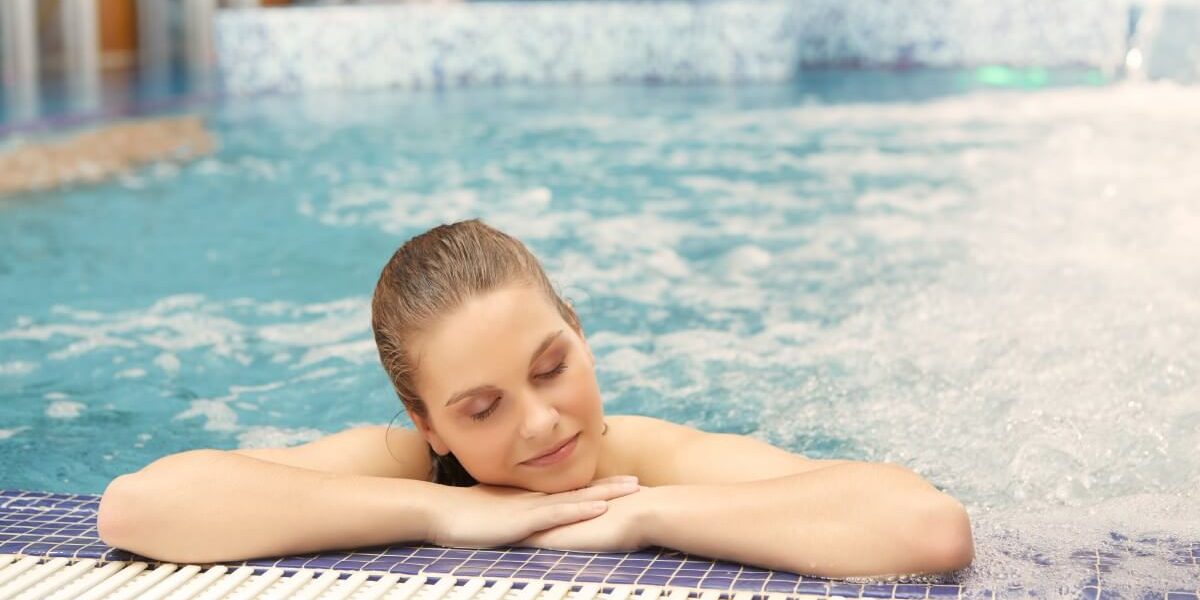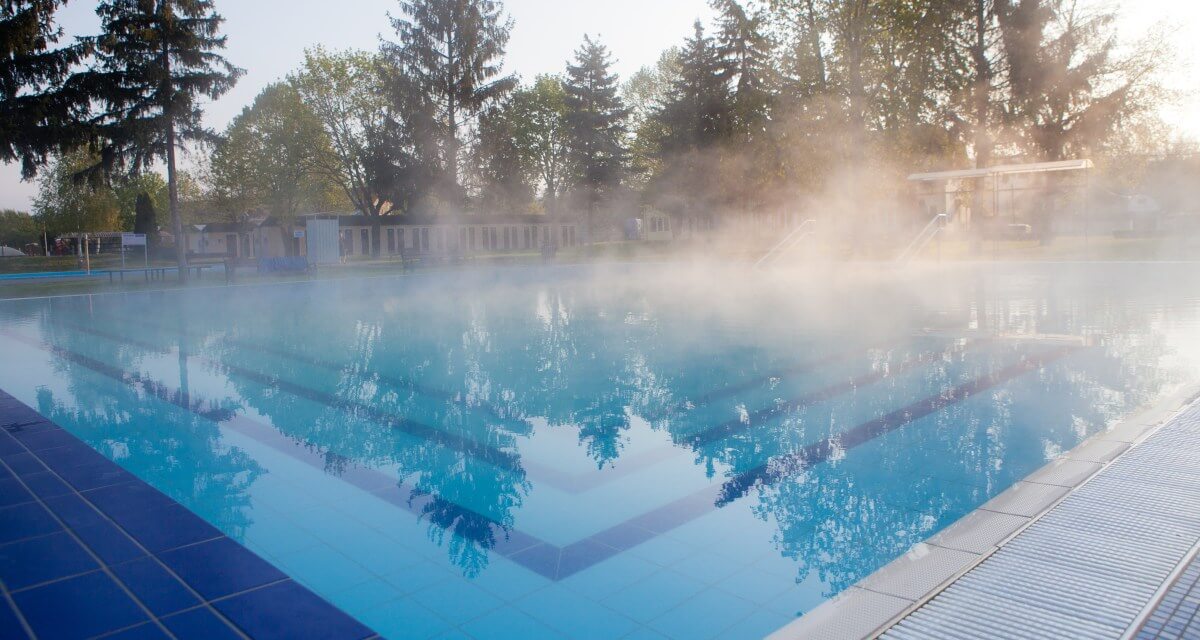When you are heating a swimming pool you end up consuming a lot of energy and this leads to higher heating bills. The best way to improve your swimming pool’s energy efficiency and its heating is by installing a pool heater that is energy efficient. This is a good step to take in order to ensure that your heating costs when it comes to pool heating are reduced.
Heat pump heater
A heat pump is technically electric in nature because it requires it to run. The only difference is that it does not necessarily use electricity to generated heat. It actually uses warm air in order to heat the pool water which passes through the heat pump.
How it works
A compressor in the heat pump draws Freon gas from an evaporating tube which will cool the tube then creates a hot gas from the condensation. This hot gas is what passes through the condenser in order to heat the pool water by warming the tubes on the outside. The hot gas is squeezed and pressurized through the coil, mixing it with the cooler water that is being pumped through the hate pump thus warming the water. This cycle is, therefore, repeated over and over while the heat pump is running. This keeps the pool water circulating while it’s creating the warm water. This is the same technology used in refrigerators and air conditioners. The difference is that these appliances are used when removing heat instead of creating it and it circulates it back through.
Advantage and disadvantage of heat pump pool heaters
An advantage when using a heat pump is in the low annual operating costs. As long as your energy source is constant and sufficient, you will not have any problems with this heating system. Also, it’s environmentally friendly and it has a lifespan of between ten to twenty years.
A disadvantage is that it requires electricity to run. If you do not have electricity you will not be able to heat your pool and it is quite expensive. Using electricity to heat your pool will greatly increase your electric bill at the end of the month. Additionally, heat pumps do not work well in cold climates. If the weather is too chilly, the efficiency of the heat pump lowers significantly.
Solar Pool Heater
A solar heater is one of the most cost-effective pool heaters because it uses solar energy and it can work in most climates. A solar heater consists of filters, control valves, and solar energy collectors. There are two specific types of solar heaters, the glazed solar heater, and the unglazed solar heater.
Unglazed solar heaters
An unglazed solar heater is usually bought and used in pools which never dip below the freezing point. This heater is usually created from a UV-treated rubber that is durable or any plastic material. They are way cheaper than glazed heaters when it comes to their initial price.
Glazed solar heaters
Glazed solar heaters are best heaters used in areas that have a harsher weather climate because they are more durable than their unglazed counterparts. They are coated with a glass covering and this makes them very expensive when you want to purchase them initially. They have an expensive copper tubing which makes them even more efficient than the unglazed heaters. This heater can be used all year round on daily basis without it experiencing any wear and tear.
How they work
The solar heat is not complicated when it comes to the way it works. It pumps pools water through a filter then pumps it through the solar collector. When the pool water reaches the collectors, it is heated and pumped back inside the swimming pool.
Advantages and disadvantages of solar heaters
A solar heater is the quickest pool water heater in the market. Since it has a simple mechanism when it’s running, it circulates pool water during heating very first. These heaters have the advantage of working perfectly regardless of the temperatures outside. Their initial cost is cheap and it runs quietly compared to the other pool water heating systems. A solar heater is the most cost competitive pool heater compared to heat pumps and gas pump heaters.
A disadvantage with regard to solar heaters is that they can only operate on sunny days. Also, some of the solar heaters do not have a long lifespan. Despite the fact that solar pool heaters are very efficient, you will have to replace some parts of the heater after some time.
Gas Pool Heater
A gas pump pool heater runs on propane or natural gas. An important factor to consider before you decide to get this pool heater is the price of gas in your area. These pool heaters are the most popular heating systems for swimming pools. With the innovations in technology, you can find new gas heaters that have a higher energy efficiency compared to the other older models.
How it works
Since a gas pool heater runs on propane or natural gas it operates by passing the pool water through a combustion chamber which burns the gas and warms the copper coils. The pool water passes through these copper coils and they return back to the main pool heated. This heater works more efficiently in when heating swimming pools in short periods and they heat the pool very quickly.
Advantages and disadvantages of gas pool heaters
Gas pool heaters are affordable and very low maintenance. They have a longer lifespan meaning that they are quite durable and they have a low operating cost if the gas being used is cheap in your area. These pool heaters are also very easy to install. In addition, if you do not want to heat your swimming pool on a daily basis, this heater will be the most efficient. A gas pool heater can maintain any temperature that you desire in you swimming pool regardless of the temperatures outside.
A big disadvantage when it comes to gas pool heaters is that they are not aesthetically pleasing to most people. These pool heaters are very big and visually they leave a lot to be desired. Compared to other heating systems, the gas heater is not as energy-efficient.











